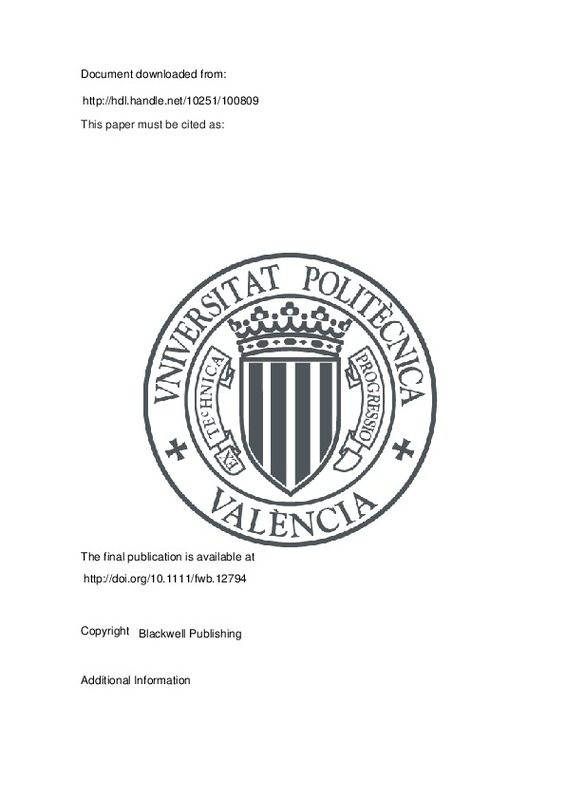JavaScript is disabled for your browser. Some features of this site may not work without it.
Buscar en RiuNet
Listar
Mi cuenta
Estadísticas
Ayuda RiuNet
Admin. UPV
Flow regulation increases food-chain length through omnivory mechanisms in a Mediterranean river network
Mostrar el registro sencillo del ítem
Ficheros en el ítem
| dc.contributor.author | Ruhí, Albert
|
es_ES |
| dc.contributor.author | Muñoz, Isabel
|
es_ES |
| dc.contributor.author | Tornés, Elisabet
|
es_ES |
| dc.contributor.author | Batalla, Ramón
|
es_ES |
| dc.contributor.author | Vericat, Damia
|
es_ES |
| dc.contributor.author | Ponsati, Lidia
|
es_ES |
| dc.contributor.author | Acuña, Vicenç
|
es_ES |
| dc.contributor.author | Von Shiller, Daniel
|
es_ES |
| dc.contributor.author | Marcé, Rafael
|
es_ES |
| dc.contributor.author | Bussi, G.
|
es_ES |
| dc.contributor.author | Francés, F.
|
es_ES |
| dc.contributor.author | Sabater, Sergi
|
es_ES |
| dc.date.accessioned | 2018-04-21T04:22:20Z | |
| dc.date.available | 2018-04-21T04:22:20Z | |
| dc.date.issued | 2016 | es_ES |
| dc.identifier.issn | 0046-5070 | es_ES |
| dc.identifier.uri | http://hdl.handle.net/10251/100809 | |
| dc.description.abstract | [EN] Dams fragment river systems worldwide, and Mediterranean-climate rivers, characterised by highly seasonal hydrographs and adapted biotas, are particularly impacted by flow regulation. Whereas the effects of flow regulation on hydrology, sediment transport and biodiversity have long been examined, responses at the food-web level remain understudied. Environmental variation is a key control of food-web structure. Thus, we predicted that flow regulation would impact food-chain length (FCL) via changes in the flow variation regime, and we tested this prediction in a set of flow unregulated to completely regulated reaches in a Mediterranean river basin. In each reach, we characterised flow variation, together with two other putative controls of FCL (productivity and habitat size). We combined community data with carbon and nitrogen stable isotopes to estimate food-chain length, and Bayesian mixing models allowed estimates of dietary proportions of consumers. Flow variation was paramount in controlling FCL in the studied river network, and this same control largely explained the degree of omnivory among top predators. Thus, omnivory mechanisms were the main proximate structural mechanism allowing shifts in food-web structure and linking disturbance regimes to FCL. Our results suggest that flow regulation in Mediterranean rivers may impact food-web structure even when no significant changes in community composition are observed. If highly variable Mediterranean streams become increasingly affected by flow regulation, the resulting more stable conditions could enhance intraguild predation and thus lengthen riverine food chains. | es_ES |
| dc.description.sponsorship | We thank Roberto Merciai, Jose Andres Lopez and Joan Font for their help in the field, Lina Ramirez-Solano and Emili Garcia-Berthou for their help with analyses and Marc Montenegro for the illustrations in Fig. 1. The Sabo Lab at Arizona State University and anonymous reviewers provided suggestions that improved the quality of the article. This study was funded by the Spanish Ministry of Economy and Competitiveness through the SCARCE project (CSD2009-00065). Authors acknowledge the support from the Catalan Government through the Consolidated Research Groups 'Fluvial Dynamics Research Group (2014 SGR 645)' and the 'Catalan Institute for Water Research (2014 SGR 291)'. | es_ES |
| dc.language | Inglés | es_ES |
| dc.publisher | Blackwell Publishing | es_ES |
| dc.relation.ispartof | Freshwater Biology | es_ES |
| dc.rights | Reserva de todos los derechos | es_ES |
| dc.subject | Dams | es_ES |
| dc.subject | Dynamic stability hypothesis | es_ES |
| dc.subject | Food webs | es_ES |
| dc.subject | Hydrologic alteration | es_ES |
| dc.subject | Trophic position | es_ES |
| dc.subject.classification | INGENIERIA HIDRAULICA | es_ES |
| dc.title | Flow regulation increases food-chain length through omnivory mechanisms in a Mediterranean river network | es_ES |
| dc.type | Artículo | es_ES |
| dc.identifier.doi | 10.1111/fwb.12794 | es_ES |
| dc.relation.projectID | info:eu-repo/grantAgreement/MICINN//CSD2009-00065/ES/Evaluación y predicción de los efectos del cambio global en la cantidad y la calidad del agua en ríos ibéricos/ | es_ES |
| dc.rights.accessRights | Abierto | es_ES |
| dc.contributor.affiliation | Universitat Politècnica de València. Departamento de Ingeniería Hidráulica y Medio Ambiente - Departament d'Enginyeria Hidràulica i Medi Ambient | es_ES |
| dc.description.bibliographicCitation | Ruhí, A.; Muñoz, I.; Tornés, E.; Batalla, R.; Vericat, D.; Ponsati, L.; Acuña, V.... (2016). Flow regulation increases food-chain length through omnivory mechanisms in a Mediterranean river network. Freshwater Biology. 61(9):1536-1549. https://doi.org/10.1111/fwb.12794 | es_ES |
| dc.description.accrualMethod | S | es_ES |
| dc.relation.publisherversion | http://doi.org/10.1111/fwb.12794 | es_ES |
| dc.description.upvformatpinicio | 1536 | es_ES |
| dc.description.upvformatpfin | 1549 | es_ES |
| dc.type.version | info:eu-repo/semantics/publishedVersion | es_ES |
| dc.description.volume | 61 | es_ES |
| dc.description.issue | 9 | es_ES |
| dc.relation.pasarela | S\334021 | es_ES |
| dc.contributor.funder | Ministerio de Ciencia e Innovación | es_ES |







![[Cerrado]](/themes/UPV/images/candado.png)

